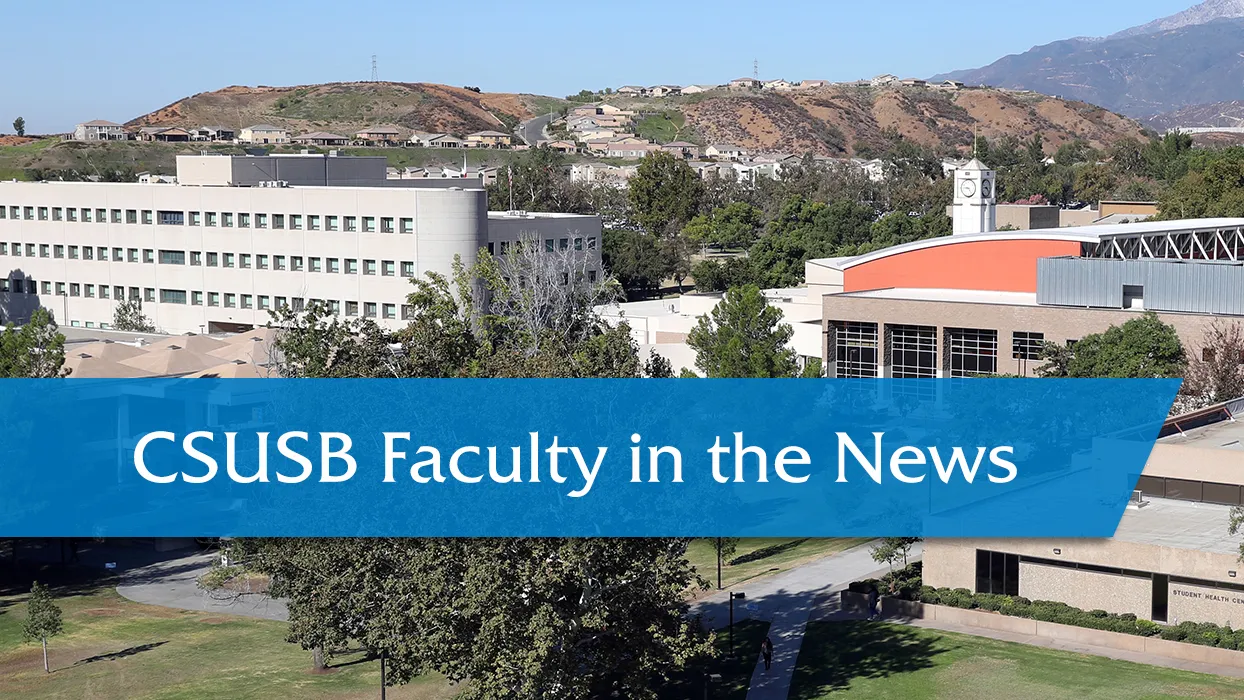NOTE: Faculty, if you are interviewed and quoted by news media, or if your work has been cited, and you have an online link to the article or video, please let us know. Contact us at news@csusb.edu.
CSUSB professor asks, ‘Are We Really Narcissists Only Out for Ourselves?’
Psychology Today
April 20, 2021
Anthony Silard, associate professor of public administration, questioned in his Psychology Today blog, The Art of Living Free, what is our true nature – narcissist or mensch?
Silard suggested: “This week, attune to your natural inclination to help others in need. Take note of how you feel afterward, and compare this feeling to other moments when you act purely to advance your own interests. You may find the results of your sample-of-one experiment surprising—perhaps even transformative—and experience firsthand how helping others expands your happiness.”
Criminal justice professor Brian Levin interviewed about Derek Chauvin verdict (audio begins around 8:13)
KOGO-AM
April 21, 2021
Brian Levin, criminal justice professor and director of the Center for the Study of Hate and Extremism was interviewed about the Derek Chauvin verdict.
“I think based on the evidence presented, it really was clearly guilty on all counts,” Levin said. “The murder charges were not about whether Chauvin intended to kill – what they were about with respect to second degree murder, was that he intended to do an assault, and in the course of that assault, the victim died.”
Crime data collection from law enforcement is ‘very uneven’ across the U.S., says CSUSB professor
The Verge
April 21, 2021
Brian Levin, director of the Center for the Study of Hate and Extremism at California State University, San Bernardino, explains that a problem with crime data collection from law enforcement is that it’s “very uneven” across the United States. That’s because not all police agencies are set up to track hate crimes. It’s typically big cities that have large police departments with specialized units that are able to track hate crimes.
While the recent jump in hate crime statistics reflects a real growth in attacks, it may also reflect a new willingness to designate attacks as hate crimes, attacks that would have otherwise gone unreported. But while the current system produces only limited information, Levin says it’s better than nothing.
“Even if you have 18,000 rain buckets and thermometers, and 16,000 are kicked over, but you’re getting reports across the country from over 2,000 — which is kind of what we got — that tells you something,” he says.
CSUSB’s Center for the Study of Hate and Extremism cited in segment about anti-Asian hate crimes (segments starts around 05:08:40)
KGPE-FRES (CBS)
April 21, 2021
A recent study from Cal State San Bernardino found anti-Asian hate crimes rose nearly 150 percent last year in some of the largest cities in the U.S.
These news clips and others may be viewed at “In the Headlines.”
